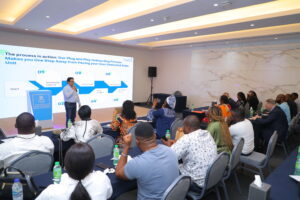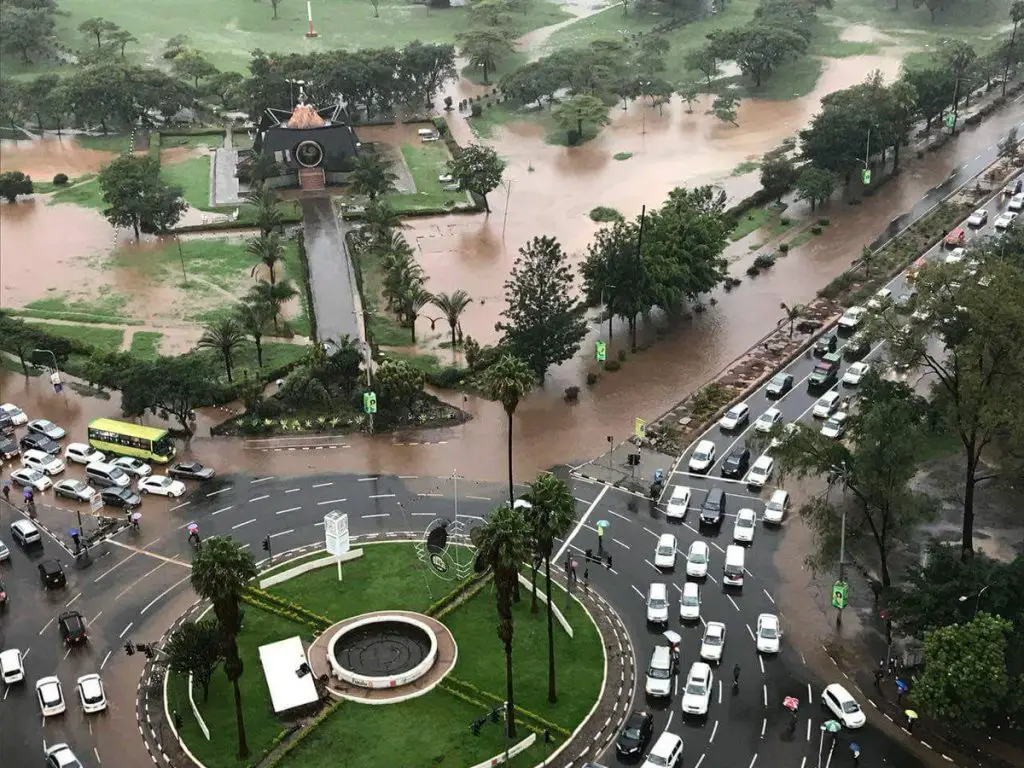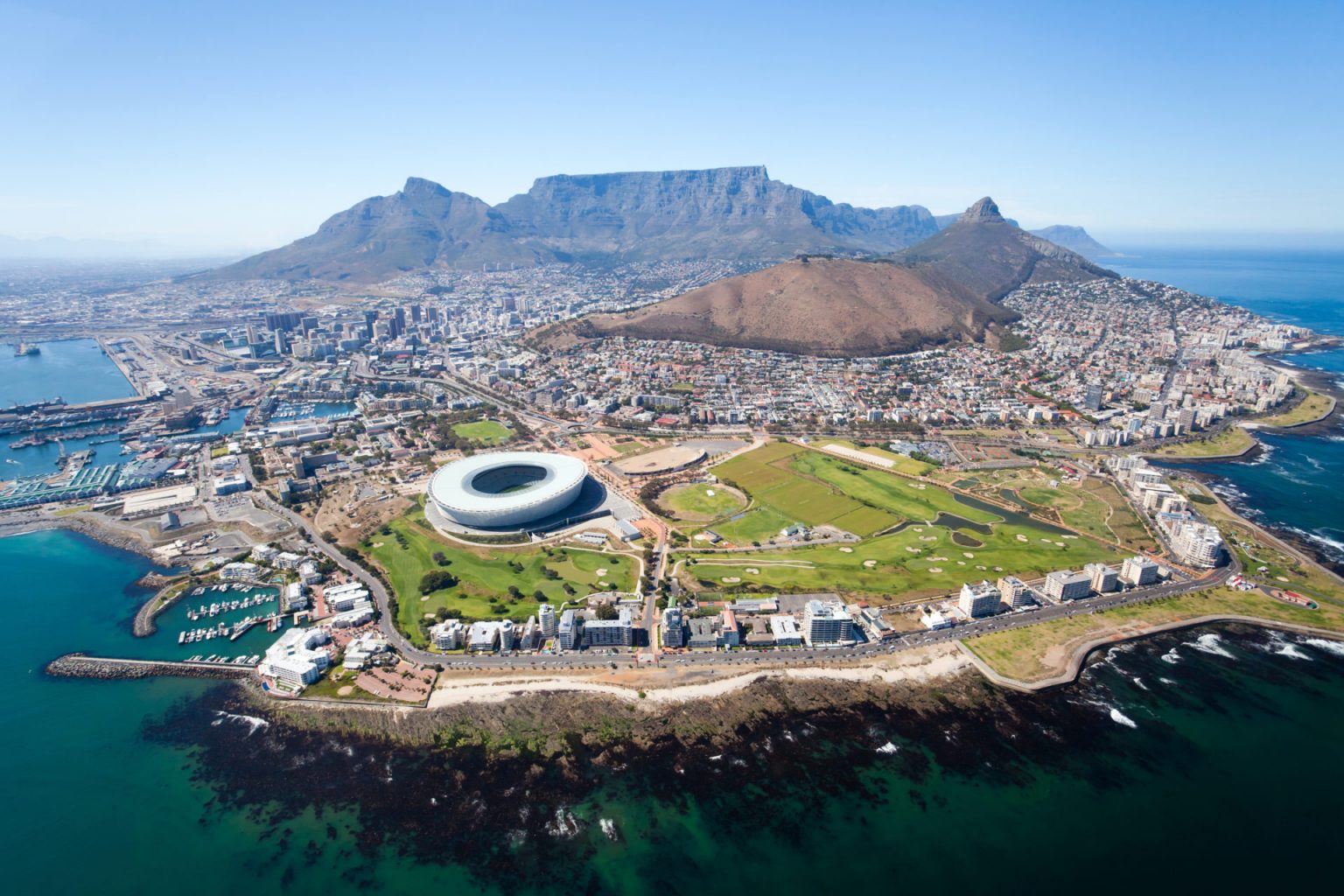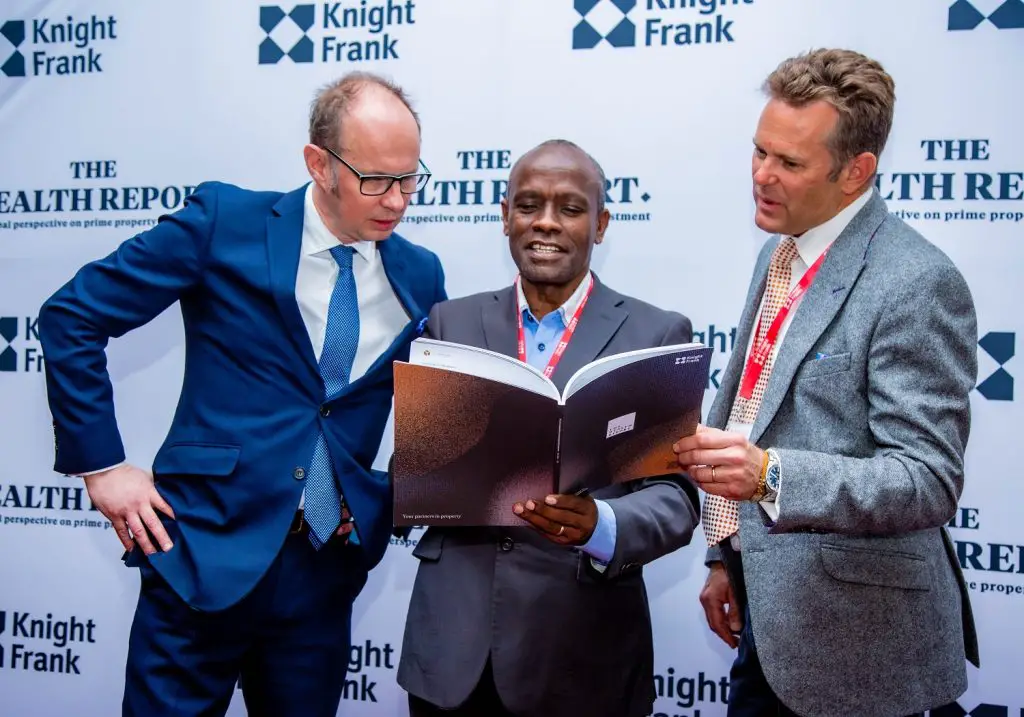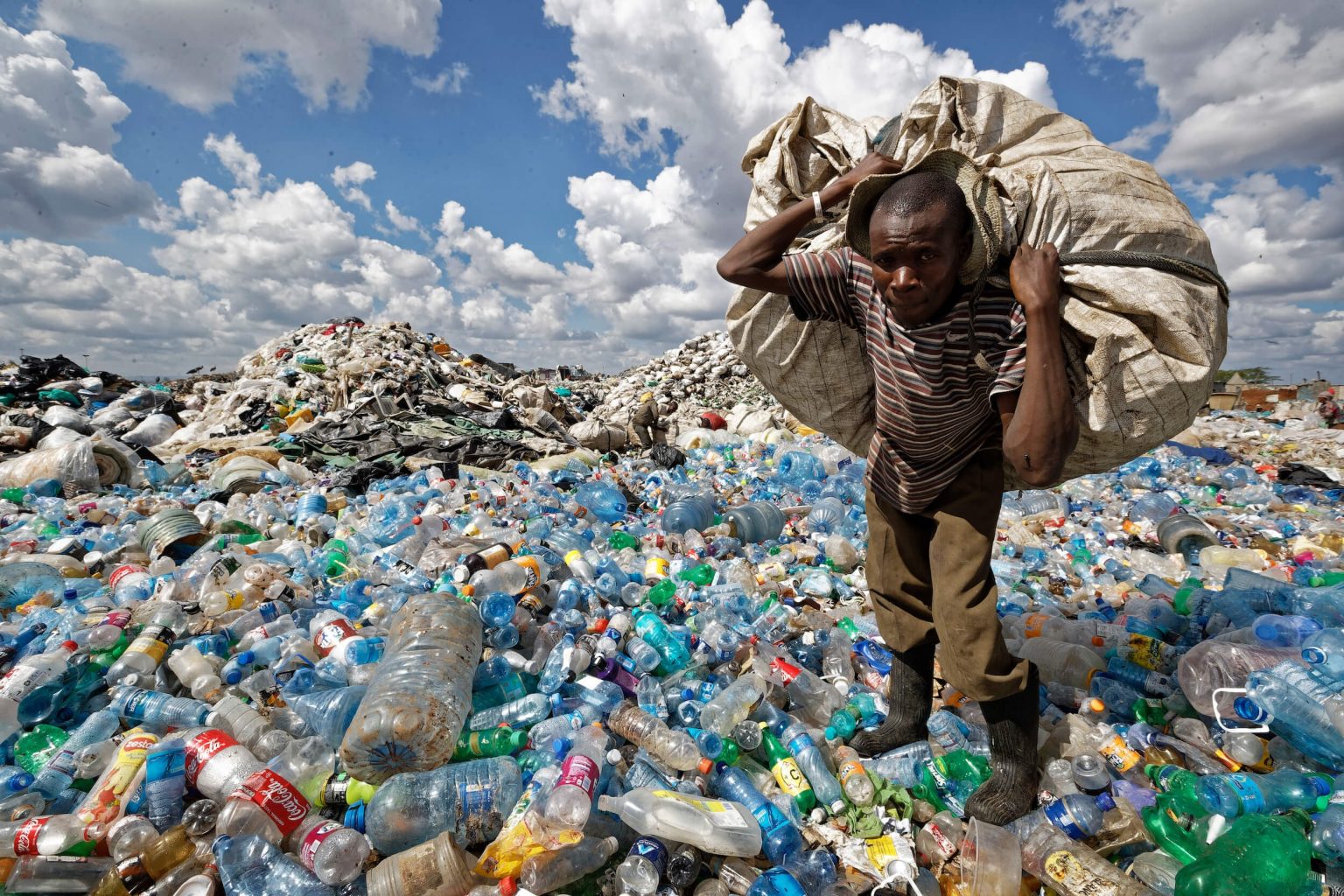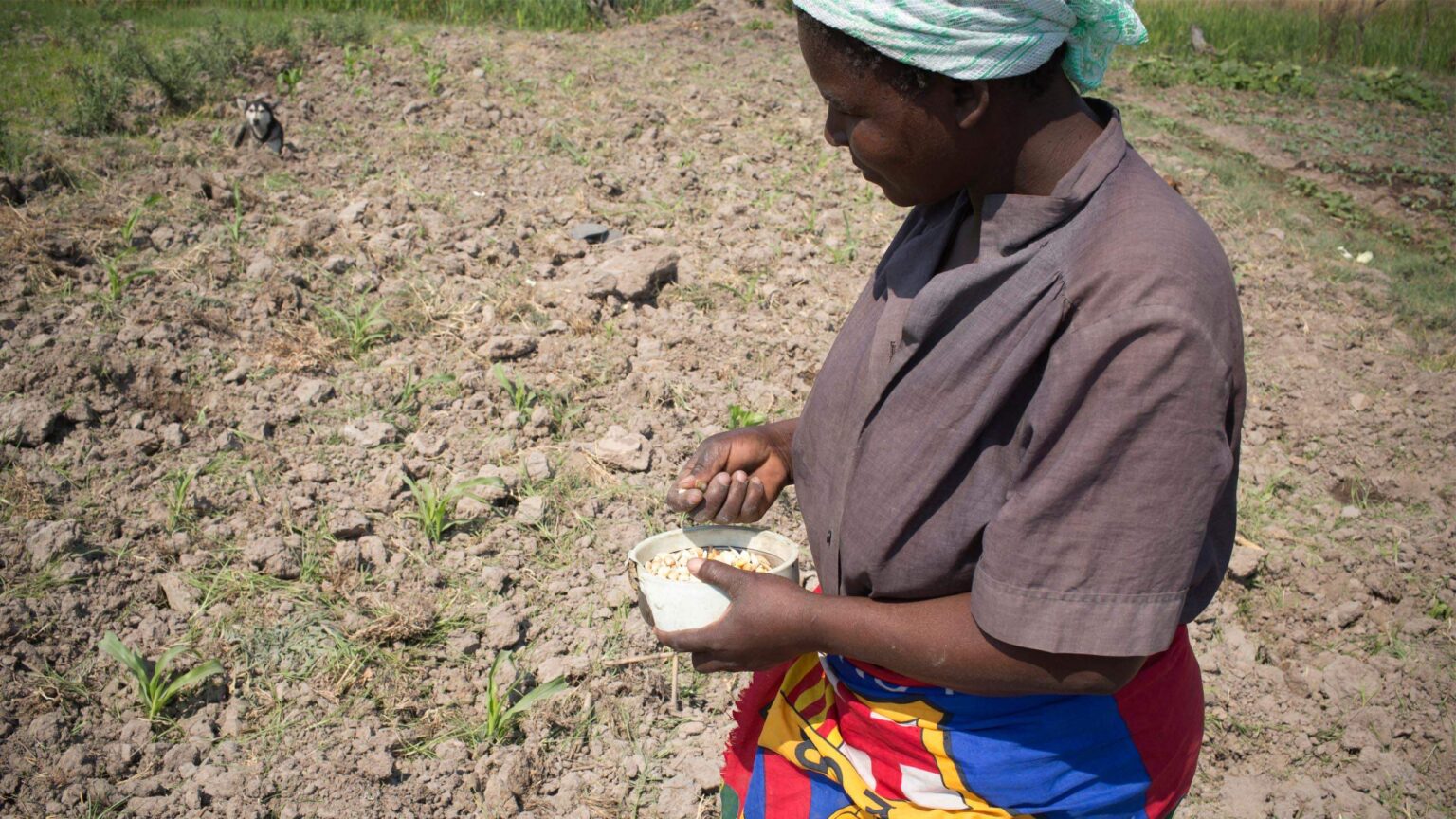- Partners back AIM Congress 2024 vision for global economic stewardship
- AIM Congress 2024: pre-event forums set the stage for strategic insights on global showcase
- Kenya, Tanzania braces for torrential floods as Cyclone Hidaya approaches
- EAC monetary affairs committee to discuss single currency progress in Juba talks
- Transport and food prices drive down Kenya’s inflation to 5% in April
- Payment for ransomware attacks increase by 500 per cent in one year
- History beckons as push for Kenya’s President Ruto to address US Congress gathers pace
- IMF’s Sub-Saharan Africa economic forecast shows 1.2 percent GDP growth
Author: Njenga Hakeenah
I have 10 years of experience in multimedia journalism and I use the skills I have gained over this time to meet and ensure goal-surpassing editorial performance. Africa is my business and development on the continent is my heartbeat. Do you have a development story that has to be told? Reach me at njenga.h@theexchange.africa and we can showcase Africa together.
The bank is not there to make money for you but instead, it is to make as much money from you as possible.…
As the economies deteriorate continent-wide, the mass movement of people means that the capacity of urban towns to cater for the increasing demands by migrants is stretched beyond the original plans.
This means that providing employment and access to basic amenities are limited which leads to breakdowns in service provision and delivery.
Kenya, for instance, did not achieve the Millennium Development Goal (MDG) for increasing access to water and sanitation.
As one of the countries that failed to hit this key milestone, a meagre 30 per cent of Kenyans have access to improved sanitation. This percentage means that more than 30 million Kenyans are still using basic types of latrines while almost six million defecate in the open. This number could go higher if numbers of shared facilities are included in the data provided by the World Bank.…
Getting treatment in Kenya’s medical institutions is akin to signing up for an expensive loan that may not be easy to service.
For instance, people who have opted to go to India say that the costs in the Asian nation are twice or thrice cheaper for the medical part. They thus opt to raise funds for the airfare and get the treatment outside Kenya.
Getting treatment in Kenya is financially draining since the National Health Insurance Fund is largely unreliable. The national scheme is the biggest insurer covering more than 90 per cent of the about eight million Kenyans with health insurance.
This means that no matter what kind of illness, the patient has to dig into their pockets despite the cover.…
The continent’s most promising markets are South Africa, Kenya, Nigeria, Mauritius and Tanzania.
According to a PwC report, Hotels outlook: 2019–2023 Future resilience, South Africa would see some sustained but suppressed growth through 2019 hitting R16.8 billion from the R16.7 billion recorded in 2018. With the pandemic, this growth slowed down but the recovery is promising especially with the lockdowns and other safety measures dropped.
The report indicates that overall revenue from hotel room accommodation rose by 0.5 per cent with international visitor numbers to South Africa continuing on an upward trajectory at just 1.7 per cent over 2017 numbers.
“We forecast that hotel room revenue will grow by 0.4 per cent in 2019 to R16.8 billion with a compound annual growth rate of 3.3 per cent over the forecast period. The growth in hotel rooms in South Africa will continue, with an additional 3,800 rooms to be added over …
In 2015, the PLOS Pathogen journey noted that a fungus dubbed Tropical Race 4 had already decimated the crop in Southeast Asia over a number of decades.
According to the independent, the disease was first discovered in Australia, Jordan, Mozambique, Pakistan, the Middle East and Africa in 2013. It is so severe that it had destroyed whole plantations.
Fears were that it was just a matter of time before it landed in Latin America. At the time, in 2015, researchers warned that developing new banana cultivars was an arduously expensive affair that would probably not curtail the spread of the disease in time.
Years later, the banana crop remains resilient in most parts of Africa with the International Institute of Tropical Agriculture (IITA) saying that banana and plantain are important staple foods in many developing countries, especially in Africa.…
The proportion of Kenyans seeking foreign passports is not the highest for Africa, with 31 per cent of high net worth individuals (HNWIs) in South Africa seeking a second passport, and 44 per cent of HNWIs in Nigeria.
Andrew Shirley, editor of The Wealth Report at Knight Frank said that amongst Kenyans seeking new passports, the proportion was interested in reducing their tax bills, enhancing their safety, or getting a better quality of life just as much as the wealthy globally.
Of Kenyans seeking new passports, around 59 per cent are doing so as an investment, against a global average of 17 per cent, while 38 per cent cite education as a driver, compared with 18 per cent worldwide.
Meanwhile, 34 per cent are seeking better healthcare, compared with 13 per cent worldwide.…
Conservation, biodiversity protection, resource efficiency, consumption patterns, climate mitigation and adaptation, employment development, as well as poverty alleviation, are all emphasized in three resolutions.
According to a resolution on minerals and metals, solutions should be developed to increase the environmental sustainability of these products over their whole existence.
Protect, conserve, restore, and sustainably use lakes while incorporating them into national and regional development plans are the goals of the resolution on sustainable lake management.…
In his remarks, the company’s regional head – south, Olalekan Babalola, emphasised that NITRA is integral to bringing the industry together to channel innovative and collaborative ways in which the federal government, regulators, providers, and stakeholders can partner on ICT growth as well as address policy impediments to its acceleration and infrastructure demands.
According to the latest research, this has become crucial. A recent data survey indicated that 58% of Nigerians are still unconnectedly causing a loss of unquantifiable revenue that can be derived from the ICT sector alone and utilized as an enabler to all sectors of the economy. Therefore, platforms such as NITRA should remain steadfast in advocating industry cooperation towards optimizing connectivity capabilities with scalable solutions.
In a statement, Phase 3 Telecom’s spokesperson, Morayo Nwabufo, said: “Phase3 is committed and will continue to support credible initiatives that foster meaningful connectivity and innovative technological advancements for a fully …
His vision for the Private Office of Sheikh Ahmed Bin Faisal Al Qassimi is to be one of the best royal offices in the Middle East and he is dedicated to continuing to be the driving force behind the private office.
To bring this vision to life, His Excellency Tomasz Zaleski adds that one of his passions is to continue to build a network of quality individuals who are inspired by his vision because it personally holds meaning to them.
“I am honoured to be connected to various administrators ranging from politicians, humanitarians and Sheikhs who are generous, and each contributes to the world in a positive and expansive manner,” he says.
His Excellency Tomasz Zaleski adds that developing opportunities for several other ambitious entrepreneurs and companies in the UAE is one of his biggest passions. He says that this is why he believes that “the ability to create is …
The potential for Africa to feed the world cannot be underestimated. IFAD’s The Field Report indicates that a quarter of the world’s arable land is found in sub-Saharan Africa yet the region produces only 10 per cent of the world’s agricultural output.
Sadly for Africa, rural poverty keeps driving people away from the countryside to the cities in search of a better life. Year after year, cities that have become overcrowded are putting the vulnerable at risk with forced migration.
Globally, there will be more than 9 billion people on earth by 2050 which is an extra two billion mouths to feed.
If policies are right, Africa is primed to tap into the opportunity offered by this population growth. IFAD indicates that economic growth from agriculture in sub-Saharan Africa is 11 times more effective at reducing extreme poverty than any other sector. African governments have to get their priorities right. …

